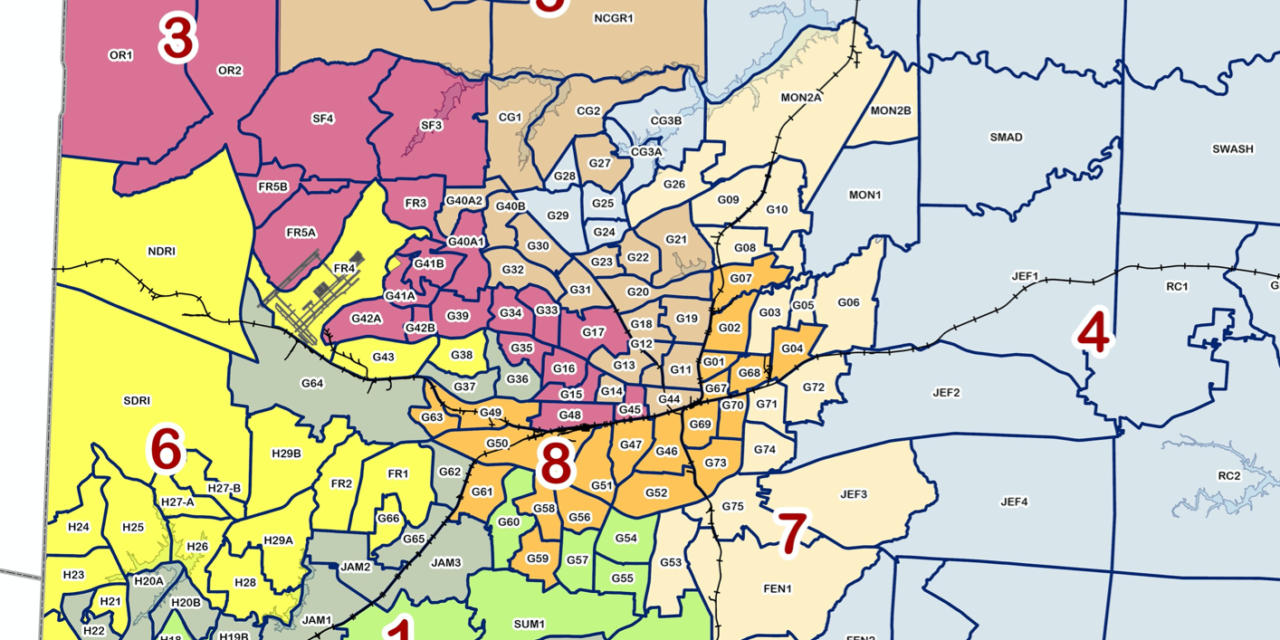The latest report is that the US Census Bureau is going to release some 2020 Census figures on Thursday, August 12.
The final figures are still scheduled to be released on Sept. 30, but the data released on Aug. 12 is supposed to be sufficient for redistricting to begin.
Both the Greensboro City Council and the Guilford County Board of Commissioners have recently held meetings on redistricting, but without the Census figures the public bodies are limited to discussing how they will go about the redistricting process.
The North Carolina State Legislature will be redistricting the state for 14 congressional districts, which is one more than the state currently has, as well as redrawing the lines for the state House and state Senate districts.
This year because of a US Supreme Court decision in Rucho v. CommonCause there will be a major change in how federal courts view redistricting. The case involved North Carolina state Sen. Robert Rucho, the head of the state Senate redistricting committee, challenging a federal district court ruling that the redistricting approved by the legislature was illegal partisan gerrymandering.
The US Supreme Court overruled the District Court, and the Supreme Court decision stated that partisan redistricting was a political question beyond the purview of federal courts.
That decision means that cases alleging overly partisan redistricting may no longer be brought in federal court, but cases alleging that the majority party has gone too far in drawing districts for its own advantage can still be filed in state court.
Both parties regularly accuse the other of gerrymandering, which historically has meant drawing ridiculous looking districts for the sole purpose of giving one party an advantage.
A case that the redistricting violates the civil rights of voters can still be filed in federal court.
The Greensboro City Council elections are nonpartisan, so gerrymandering by a political party wouldn’t apply. However, the Guilford County Board of Commissioner races are partisan and there is currently a seven-to-two Democratic majority on the board. The North Carolina legislature has the authority to redistrict the county, if the Republican legislature doesn’t approve of the districts drawn by the commissioners.
Republicans have a majority in both the North Carolina state House and Senate, which the Guilford County commissioners will likely consider when they start drawing new districts.


fodder for gerrymandering I fear. The way to avoid such is to make all races nonpartisan and all offices should have short term limits so as to avoid career politicians like Skip Alston.
The Supreme Court did the right thing. I was living in Charlotte at the time of the original ruling, when we had this convoluted district that went from Durham all the way to Charlotte along I-85.
When the district was re-drawn, it was thrown out, because we had to satisfy the voting rights act to create a district with a safe majority of minority voters, but the federal court decided that you couldn’t consider the race of the people who live in different parts of the proposed district – yet the state still somehow was supposed to ensure that the district would be in the hands of a minority person.
After the redistricting, most of the population was of the redrawn district was in North Charlotte, but the incumbent house representative lived in Durham, which was in the old district. Almost nobody in Charlotte knew who she was.
She won the primary because three people in Charlotte competed with each other and split the vote.
She pretended to move to Charlotte, but the TV stations concluded that she never actually moved there.
Democracy at its finest.
And thus the two remaining Republicans vanished from the board of county commissioners and the liberal antics kept creeping in until the whole county was destroyed and the hardworking citizens were all bankrupt and dependent on uncle sam.